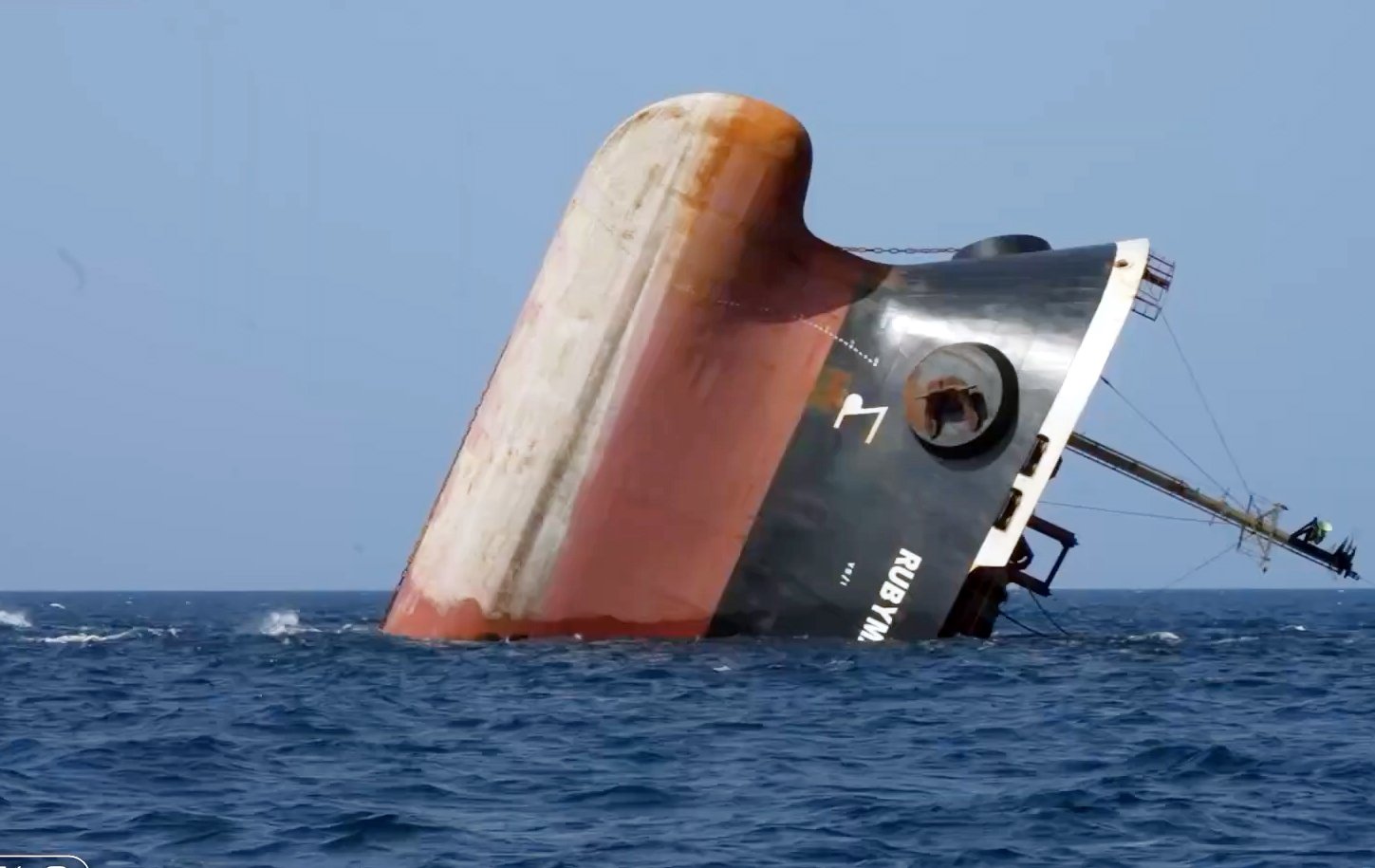Shipping through the Red Sea was ground to a near halt amid a spate of ongoing attacks launched by the Houthis, according to U.S. intelligence released in June.
The Houthis, an Iranian-backed terrorist group, have conducted a series of attacks against vessels in the Red Sea since November out of support for Hamas, another terror group that attacked Israel on Oct. 7. As a result of the Houthis actions, container shipping through the Red Sea channel — which accounts for 10 to 15% of all maritime trade — dropped by 90% as of February, according to a U.S. Defense Intelligence Agency (DIA) report from June 13. (RELATED: Israeli Officials’ Latest Comments Indicate Middle East Powder Keg May Be On Verge Of Blowing Up)
“Despite seeking international legitimacy, Houthi actions have damaged regional security, impeded international humanitarian relief efforts, and put stress on global maritime trade,” the DIA report reads.

AT SEA – MARCH 7: (EDITOR’S NOTE: Best quality available) This handout photo provided by Yemeni Al-Joumhouria TV, shows the British-registered cargo ship ‘Rubymar’ sinking after it was targeted by Yemen’s Houthi forces in international waters in the Red Sea, on March 7, 2024, in the Red Sea. (Photo by Al-Joumhouriah channel via Getty Images)
Shipping vessels, frequently the victims of Houthi attacks, have sought safer passage via alternative routes to the Red Sea. Some vessels have chosen to sail southbound and loop around Africa, adding 11,000 nautical miles to their journey and racking up $1 million in fuel costs per trip, according to the report.
Bulker and tanker vessels have been less affected by the Houthi’s actions than container vessels have, according to the report. Even so, vessels are still burdened by additional travel times and costs, and some shipping companies are paying for war risk insurance at premiums 1000% times higher than before the Israel-Hamas war broke out in October.
Attempts to stop the Houthis from attacking have been largely unsuccessful. In December, the Biden administration created a U.S.-allied naval coalition in the Red Sea — dubbed operation “Prosperity Guardian” — to provide deterrence measures, but the terrorist group continued launching attacks. U.S. and coalition forces have been routinely targeted in Houthi attacks and forced to intercept other strikes aimed at shipping vessels.
Operation Prosperity Guardian is aimed to provide defensive measures, rather than an offensive front.
“Our goal is not to completely eliminate the capabilities of Houthi forces. Our goal is to disrupt and degrade their ability to conduct these attacks,” Pentagon spokesperson Maj. Gen. Pat Ryder told reporters in February. “This collective action sends a clear message to the Houthis that they will continue to bear further consequences if they do not end their illegal attacks.”
The Houthis were re-added to the U.S. terror designation list in January. The administration offered in April to lift the “terrorist” label from the Houthis if they stopped launching attacks in the Red Sea.
The Pentagon did not immediately respond to a request for comment.
All content created by the Daily Caller News Foundation, an independent and nonpartisan newswire service, is available without charge to any legitimate news publisher that can provide a large audience. All republished articles must include our logo, our reporter’s byline and their DCNF affiliation. For any questions about our guidelines or partnering with us, please contact licensing@dailycallernewsfoundation.org.



